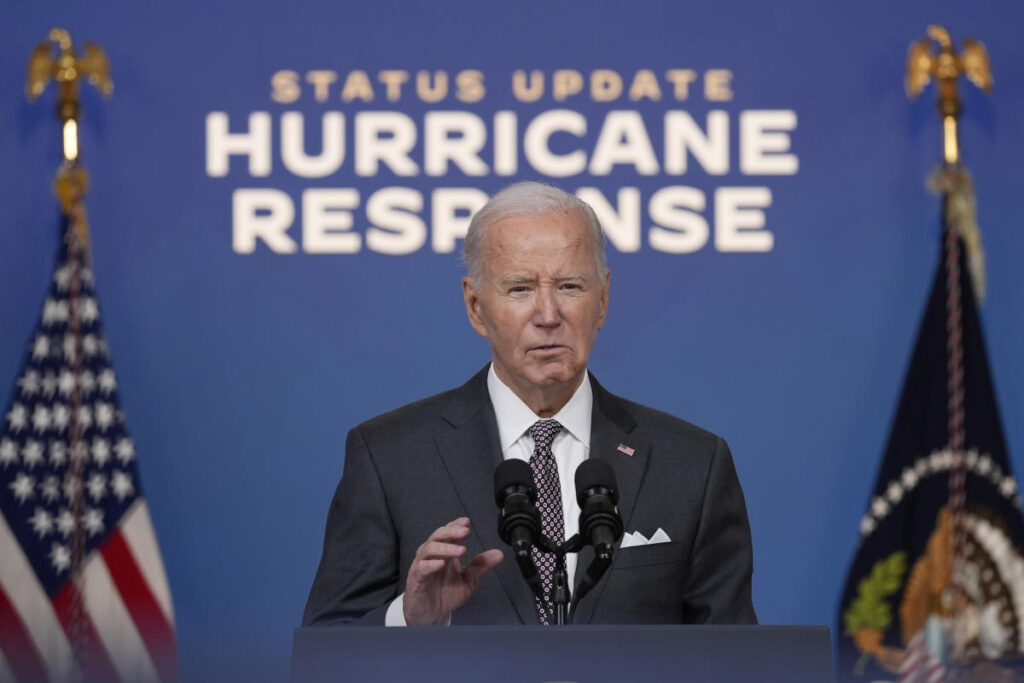In a recent White House address, President Joe Biden publicly challenged former President Donald Trump regarding his comments on the federal response to Hurricanes Milton and Helene. Biden criticized Trump for spreading disinformation, urging him to focus on helping those affected by the natural disasters instead of proliferating misinformation about the federal aid efforts. During his remarks, Biden emphasized the importance of responsible communication during crises, especially when lives are on the line and communities are struggling to recover from catastrophic incidents.
Biden’s condemnation of Trump was particularly directed at false claims concerning disaster relief funding. He refuted assertions that federal aid was being misappropriated for undocumented immigrants, clarifying that available assistance was not limited to a one-time payment of $750, a figure Trump referenced. According to Biden, the $750 was merely an initial disbursement intended to meet urgent needs such as food and essential supplies for those impacted by the hurricanes. He denounced this narrative as misleading, arguing that perpetuating such myths undermines public trust and hampers effective recovery efforts.
The President’s sentiments highlighted a broader concern with how misinformation can significantly affect disaster response efforts. Biden articulated frustration over the “reckless, irresponsible” nature of the information being circulated, suggesting it challenges the core values of American society. In urging Trump to stop the disinformation campaign, Biden underscored that leaders should aim to unite and assist affected populations rather than divide them through misleading rhetoric. He characterized the false narratives as “bizarre” and uncharacteristically un-American.
When prompted about whether he would personally reach out to Trump to discuss his remarks, Biden indicated he would not. Instead, he delivered a direct and pointed message to Trump through the media: “Get a life, man,” he advised, effectively communicating the urgency for Trump to redirect his efforts toward helping the victims of the hurricanes. This shift in focus, Biden argued, was imperative to fostering a constructive dialogue about recovery, while emphasizing the responsibility of former leaders to set positive examples during national crises.
Adding to the gravity of his address, Biden later made a reference to first responders being subjected to “death penalties,” though it was unclear if he intended to describe them facing “death threats.” This moment seemed to highlight the emotional toll that disasters and disinformation campaigns can inflict on emergency personnel and the communities they serve. By bringing attention to such issues, Biden sought to reaffirm the essential work of first responders and the broader challenges they face while trying to carry out their duties during emergency situations.
As the events unfolded, the Trump campaign chose not to respond immediately to Biden’s robust commentary. Nonetheless, the interaction encapsulates the contentious dynamic between the two leaders, especially regarding the management of crisis communication and the broader implications of misinformation in public discourse. Biden’s call for empathy and support in the wake of natural disasters stands in contrast to Trump’s narrative, showcasing the defining aspects of their respective approaches to leadership during times of national distress. The exchange not only reflects the heightened political tensions but also underscores the critical need for effective communication in fostering community resilience and recovery efforts amidst disasters.

